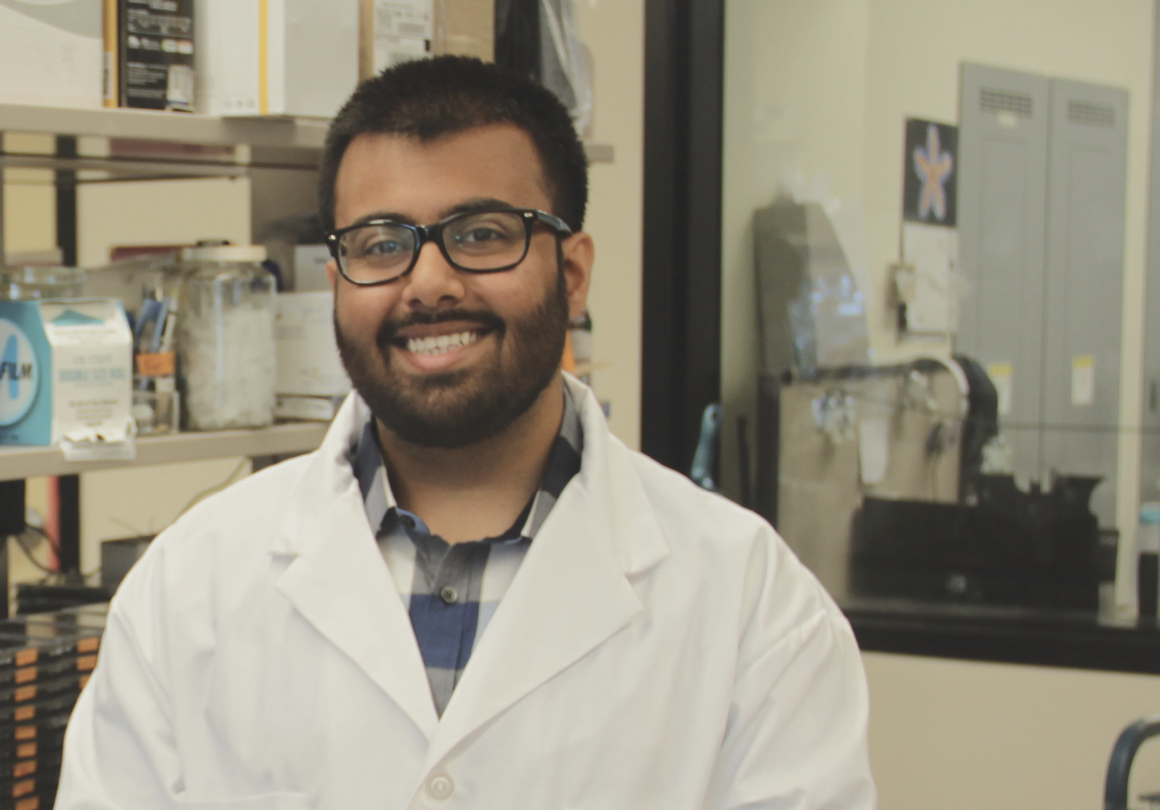Q&A with IIDR Summer Fellowship Recipient Mohammad Khan

Mohammad Khan is one of 10 IIDR trainees to have received the Institute’s prestigious Summer Fellowship Award. The highly competitive fellowship, now in its fourth year and worth $1,000, is designed to support students working in the labs of IIDR members during their summer practicum, which runs from May to August.
Whose lab are you working in and what drew you to their research?
I’m currently working in Dr. Eric Brown’s lab, where our research is focused on studying the complex and poorly understood aspects of biology in bacteria, particularly in the context of antimicrobials, using molecular genetic and biochemical approaches.
Describe your research project
Essentially, my project involves building a large chemical, genetic database using high throughput screening data.
A single screening experiment probes bacteria with a chemical library under a variety of external conditions. The Brown Lab has been conducting these chemical screens for decades, producing a huge amount of screening data for big data mining and machine learning analysis. To do this type of analysis there needs to be a sufficient database in place that can house all this information. I’ve been tasked to assist in the development of this large chemical screening database.
What are the real world applications of your research?
Antibiotic resistance is a global concern, and all of us in the Brown Lab are determined to tackle this problem by discovering and developing new antibiotics. My project has the potential to aid and speed up the drug discovery process by identifying new chemical leads and determining their mechanism of action. Once we know their mechanism of action, we can move forward with the drug development process.
What do you hope to accomplish during your fellowship?
Throughout my fellowship I hope to hone my skills in analyzing biological information, using a combination of computer science, biochemistry and statistics. Developing my core skills in programming and statistics, and applying them to problems seen in biochemistry and biology, is a major goal of mine.
How will this fellowship allow you to do this?
This fellowship has given me the opportunity to use my skills in biochemistry, statistics and programming to tackle the problem of antibiotic resistance. I will be making novel hypotheses on which chemicals will be effective drugs by themselves, or in combination with other drugs, and testing them in the lab.
What is your end goal, in terms of a career?
At the end of the day, I hope to land a career where I can apply my skills in data science and biochemistry to solve problems in fields such as biotechnology, big pharma and health care.
NewsRelated News
News Listing

McMaster Health Sciences ➚
Overcoming resistance: McMaster researchers find new utility for old antibiotics
News
January 6, 2025

December 19, 2024


